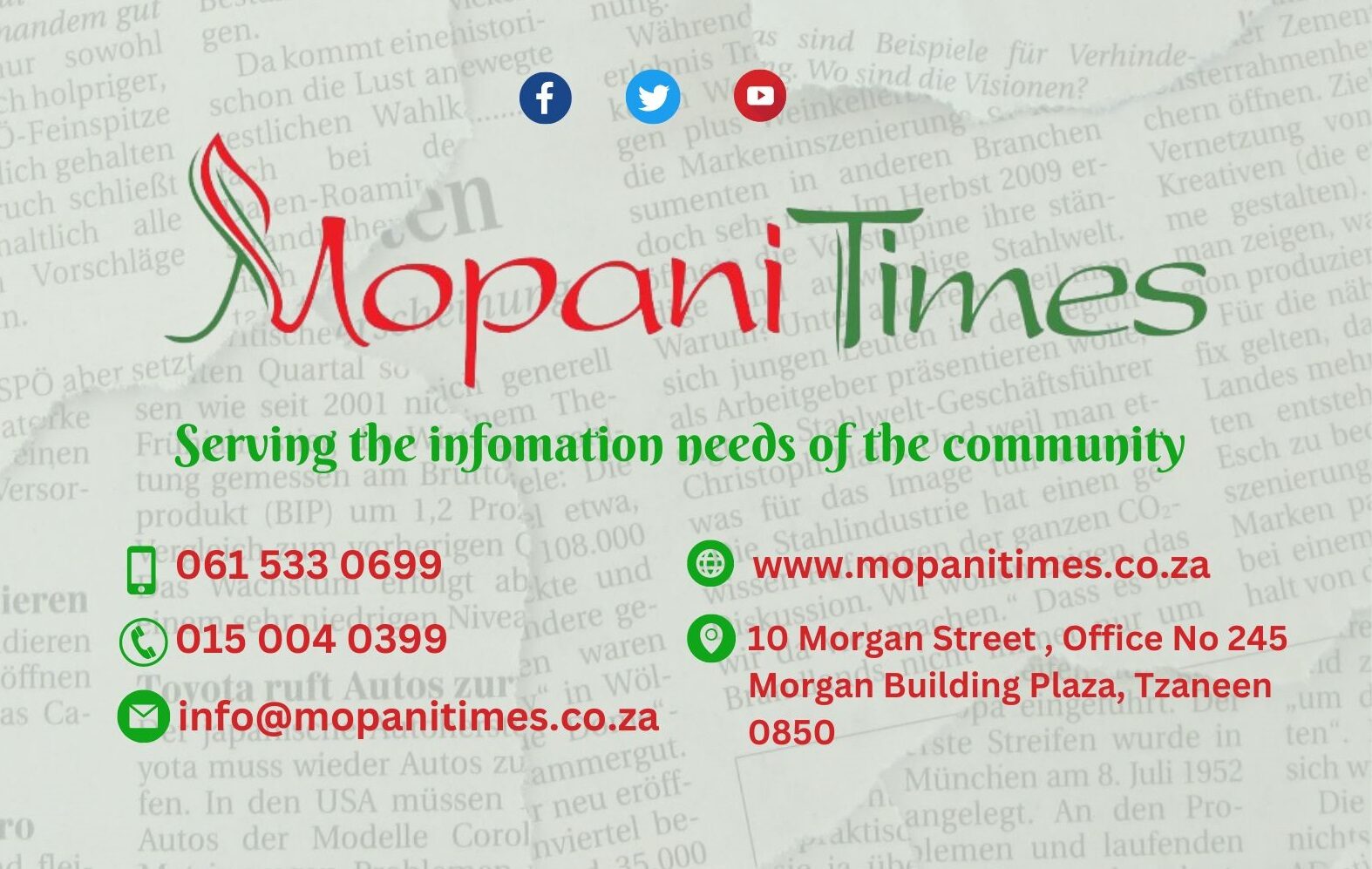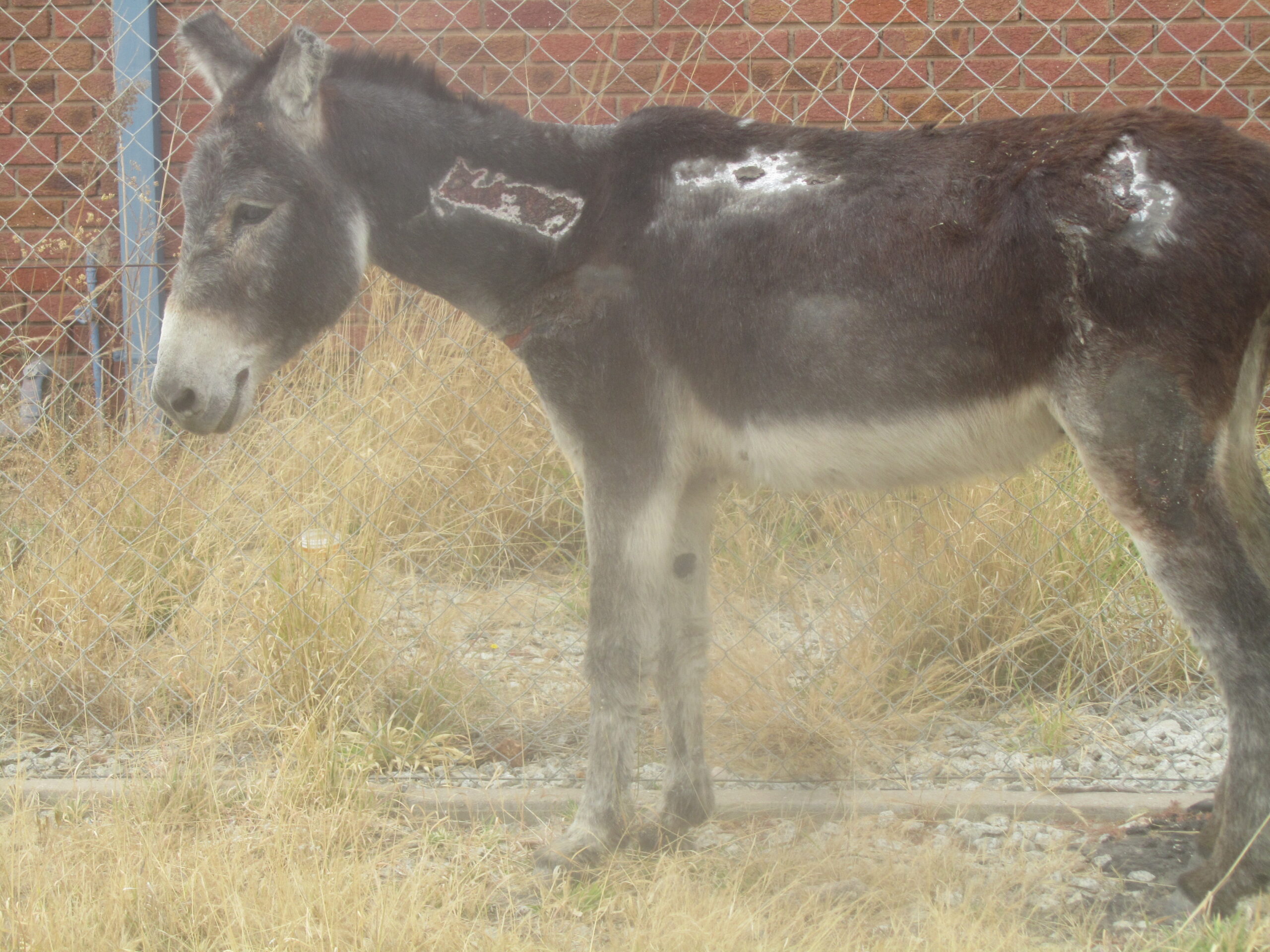One of the donkeys suffering from open wounds caused by poor harnessing or from foot and eye problems and are regularly beaten by their owners.
It is a sad irony that it is a donkey’s ability to suffer in silence that has made it one of the world’s most abused animals.
Obedient and trusting, with its doleful eyes and long ears, the donkey stoically carries on in pain when injured, hiding its suffering.
Saddled with some heavy emotional baggage, a string of abused donkeys have become pariahs in the rural hinterlands of the five district of the province, however, authorities are aware of this malevolence.
In these neighbourhoods, there are over 500 donkeys, many of which are used for everyday tasks, including delivering of building sand around and outside the villages, fetching water and firewood, transporting scrap metal to Polokwane, ploughing the fields during rainy seasons, among other gruelling undertakings.
Most of the animals are suffering from open wounds caused by poor harnessing or from foot and eye problems and are regularly beaten by their owners.
Last week, a scuffle almost exploded between a passive animal activist who questioned a small group of young men from Blood River who were seen whipping the burdened animals so cruelly as they forced them to sprint at the speed of race horse.
The animal advocate, Tlou Moloto from Molotjie area, appealed to the ruthless gang not to whip the animals as they looked tired, malnourished and in a poor state of health.
During the verbal exchange next to the Seshego hostel, Moloto asked the animal beaters: “Can’t you have mercy on the poor animals? The beating endured by these poor animals is totally unacceptable.”
The four young men seated in the cart did not take kindly to Moloto’s compassionate plea, replying rudely by saying, “Do you want to take the beating on behalf of these useless things? We can release them and substitute them with you so that we can teach you a lesson to shut your mouth and stop poking your nose in businesses that do not concern you.”
In many villages throughout the province, donkeys are considered low-status animals that can be bought cheaply and then terribly abused.
Animal rights groups believe that is the reason why they are forced to do more work than their small bodies can cope with.
Lack of compassion is found in many spheres and is often perpetrated by those whose livelihoods actually depend on the animals.
Moloko Manaka of the SPCA in Polokwane says they are constantly trying to teach those for whom the donkey is important as a “tool” in their everyday lives that understanding the needs of the creatures is paramount for their long service and welfare.
Manaka said, “SPCA promotes animal welfare education and responsible pet ownership for the benefit of both animals and people. By improving the welfare standards of animals through our outreach projects, we contribute to the upliftment of impoverished communities.”

